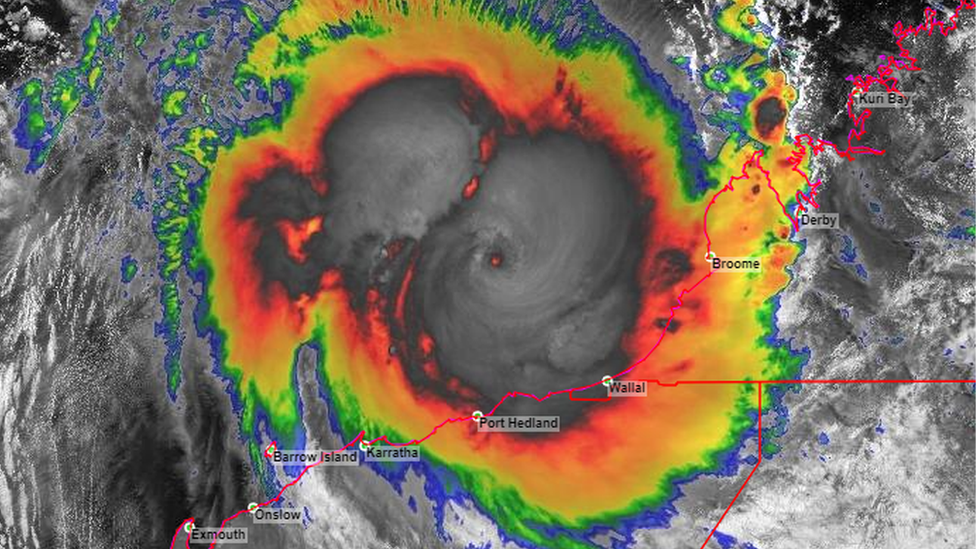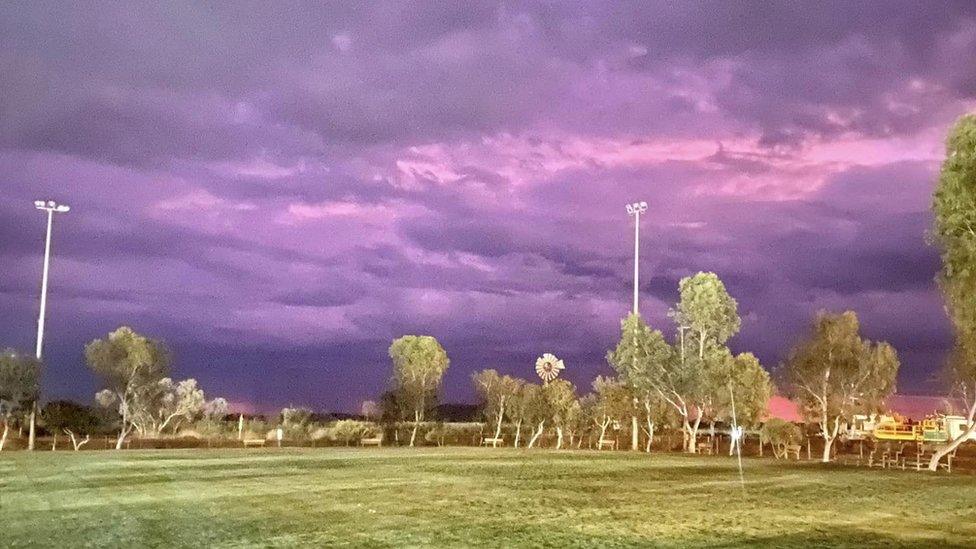Cyclone Ilsa: Powerful storm hits Western Australia
- Published

A powerful cyclone has hit Western Australia as a category five storm, setting a wind speed record but sparing populated areas from major damage.
Severe Tropical Cyclone Ilsa struck the state close to Port Hedland, the world's largest iron ore export hub, just before midnight (17:00 BST).
The storm has been downgraded to category two, but alerts remain in place for some inland communities.
The cyclone is the strongest to hit the region in some 14 years.
Bureau of Meteorology (BOM) forecaster Todd Smith said a late south-easterly shift in the storm's path meant that "Port Hedland dodged a bullet last night".
Port Hedland Mayor Peter Carter described the sound of the wind hitting the town as "very eerie and unusual" and "like a freight train".
Officials said the storm was now tracking east, and warned inland communities to stay vigilant.
"There are several remote communities and mining operations which are yet to be impacted," WA's Acting Emergency Services Minister Sue Ellery told reporters.
One well-known local tavern and caravan park lying right in the path of the storm - the Pardoo roadhouse - suffered "great damage", its owners said on Facebook.
But there have so far been no reports of injuries to people and all critical infrastructure was undamaged by the cyclone, the region's fire chief said.
"Once we can get crews onto the ground and helicopters in the air... we will move along the coast just to check to see roads and other critical infrastructure," Peter Sutton told the Australian Broadcasting Corporation (ABC).
Winds of 135.5 miles per hour (218km/h) were recorded on Bedout Island just off the coast as the storm touched down, setting a preliminary 10-minute sustained wind record for Australia.
The previous record was 120.5mph (194km/h) - winds that were recorded when Cyclone George slammed into the country in 2007.

Dramatic skies were seen in the area as the cyclone passed through
As Ilsa's very destructive winds move inland, the storm is predicted to weaken further overnight into Saturday, the Bureau of Meteorology (BOM) said.
As the cyclone approached, Port Hedland residents made last minute preparations by sandbagging and securing homes and businesses, Channel Nine reporter Ezra Holt told the BBC from the town.
He added that there were mixed emotions within the town, with some not too fussed, and others more concerned because cyclones this strong are quite rare.
Ships, including iron ore carriers, were reportedly moved from the Port Hedland harbour as the storm approached.
The last category five cyclone to hit WA was Cyclone Laurence in 2009. Two years earlier, another category five storm, Cyclone George, killed three people as it tore through mining camps just south of Port Hedland.